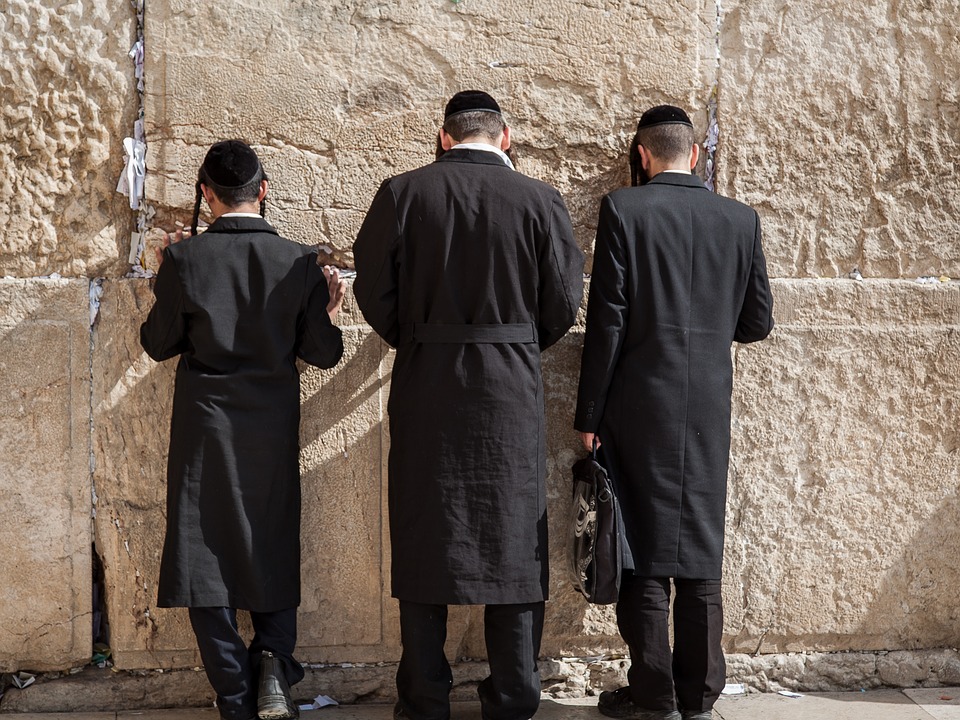 Photo from Pixabay
Photo from Pixabay This coming Tuesday, the Knesset Immigration and Absorption Committee — a parliamentary committee usually charged with guaranteeing the rights of immigrants to Israel — will hold a special hearing on the “blacklist” of rabbis from around the world whose religious authority Israel’s Chief Rabbinate rejects. This list of 162 rabbis from every Jewish denomination consists of those religious leaders the Chief Rabbinate has deemed unworthy of vouching for individuals’ Jewish identities (more than 7,000 individuals wishing to marry in Israel each year are required to prove their Jewish identities to the rabbinate.) Eight months ago, the Israeli organization I founded and direct, ITIM, made the “blacklist” public, causing an outcry in the Jewish world.
ITIM acquired the “blacklist” after suing the rabbinate in Jerusalem’s Municipal Court under the Freedom of Information Act. The court ruled in 2016 that the rabbinate had a responsibility to let the public know its processes for determining who is Jewish and who isn’t.
ITIM decided to publish the “blacklist” to call attention to the rabbinate’s unchecked power in deciding the critical question of “Who is a Jew?” and the apparent distrust, if not outright contempt, that the rabbinate was communicating toward Jews who live anywhere but Israel. We hoped that the publication of the list would spur rabbis and Jews around the world committed to the integrity of the Jewish people to convince the Israeli authorities that world Jewry is important and that a new contract of mutual trust must be forged. After the government enraged world Jewry on issues of the Kotel and conversion, we believed that common ground could be found on the issue of peoplehood. In the end, we believe that trust is critical for our future as a people — particularly given the internal and external threats Jews face around the world.
And, in fact, people were outraged and spoke up. We heard from Diaspora leadership, Jews around the world, Israelis from all walks of life, ministers and members of the prime minister’s Office.
The rabbinate continues to issue thousands of letters a year declaring citizens’ Jewish identities “unrecognized.”
But so far, the rabbinate hasn’t taken its head out of the sand.
Since last July, the rabbinate seems to have been unmoved by the public outrage and remains unchanged in its approach to the issue. ITIM recently learned that the rabbinate’s committee to establish criteria for approving rabbinic authority has met once since it was created in December 2016, and has not met at all since the “blacklist” was published. In a letter published last month, the Chief Rabbi blamed the absence of criteria on the rabbinate’s legal counsel, which it claimed prevented its publication. At a meeting I attended last week at the Ministry of Religious Affairs, a senior official acknowledged, “There is no way we can produce criteria for whom we trust.” Apparently, they know but they aren’t planning to tell.
Meanwhile, the rabbinate continues to issue thousands of letters a year declaring citizens’ Jewish identities “unrecognized” and providing no evidence for its decisions. The cases become only more absurd over time. Just last week, I received documentation demonstrating that an Israeli rabbinical court denied an Israeli immigrant a get to be legally divorced because she converted to Judaism outside of Israel by a rabbi whose authority it doesn’t recognize. Should she remarry, this Orthodox Jew will become a bigamist according to Jewish law, because the government institution created to administer that law has become extreme and exclusionary.
It has been more than two years since I stood in the Jerusalem Municipal Court and requested that the rabbinate make public its processes for determining who is a Jew and which rabbis it trusts. The words Justice Nava Ben-Or (who since has been nominated to the Israeli Supreme Court) addressed to the rabbinate’s attorneys that day continue to echo in my ears: “Your approach is unjust and un-Jewish,” she said.
At upcoming Knesset meeting, the rabbinate will have an opportunity to address those words, to make amends, to reach out to the Jewish world and to begin to repair a relationship it has badly damaged. I pray it will do so — for the sake of the thousands of people it has written out of the story of the Jewish people, and for the future of the Jewish community.
Rabbi Seth Farber is the director of ITIM: The Jewish Advocacy Center and a founder of Giyur K’Halacha, the independent network of conversion courts in Israel.





















 More news and opinions than at a Shabbat dinner, right in your inbox.
More news and opinions than at a Shabbat dinner, right in your inbox.